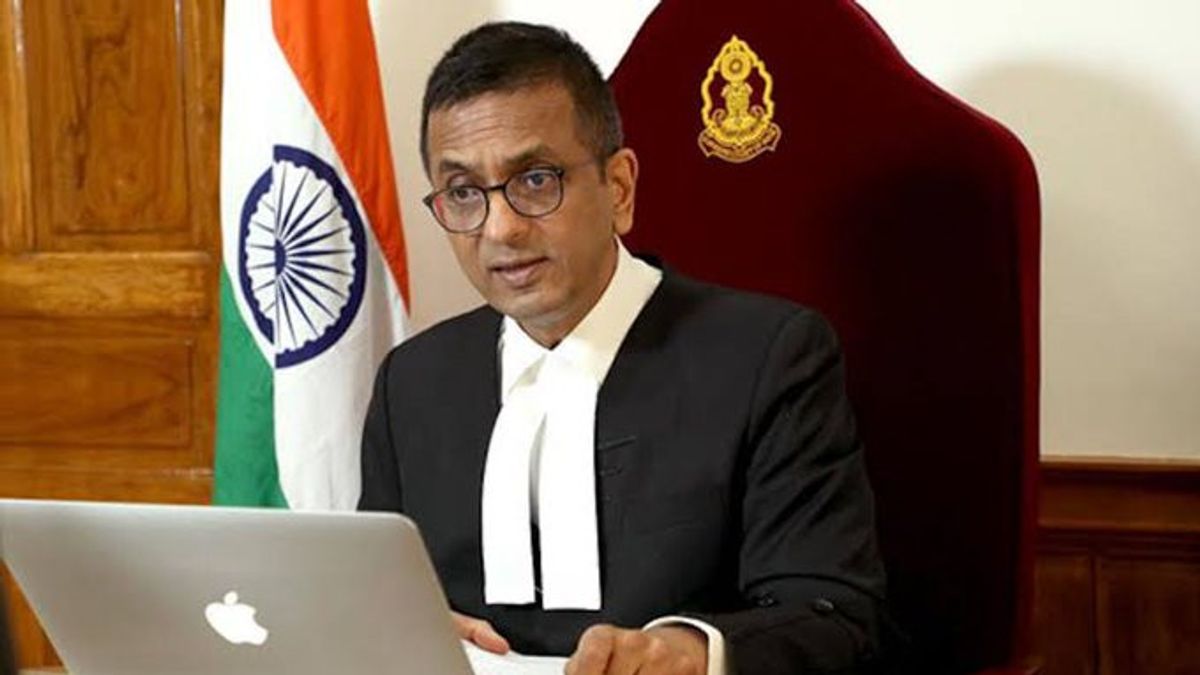JAKARTA - India's Supreme Court on Thursday, January 19th rejected Google's request to block an antitrust order asking them to change the way it markets its Android platform, which was seen as a major setback for the US company which had warned it would be forced to change its model in the Indian market.
India's Competition Commission (CCI) fined Google, which is owned by Alphabet Inc, $161 million in October for exploiting its dominant position in Android, which powers 97% of smartphones in India. CCI also asked to change the limitations imposed by Google on smartphone makers in relation to pre-installed applications.
Google challenged the ruling in the Supreme Court saying it would hurt consumers and its businesses, and warned that the growth of the Android ecosystem could stall, forcing them to change existing arrangements with more than 1,100 device (smartphone) manufacturers and thousands of app developers. Google also said "no other jurisdiction has ever requested such broad changes" against them so far.
A bench of three Supreme Court justices, including India's chief justice, delayed the January 19 implementation date for the CCI directive by one week but refused to overturn the ruling despite repeated requests from Google.
"We don't want to interfere," said Chief Justice D.Y Chandrachud, as quoted by Reuters.
During the trial, Chandrachud told Google: "Look at the kind of authority you wield in terms of domination."
India's high court asked a lower court, which has heard the matter, to rule on Google's lawsuit against it by March 31.
While Google itself did not respond to requests for comment from the media.
Google licenses its Android system to smartphone makers, but critics say it imposes restrictions such as anti-competitive mandatory pre-installation of its own apps. But they think such agreements are made to help keep Android free.
Faisal Kawoosa, the founder of Indian research firm Techarc, said the Supreme Court decision means Google may have to consider other business models in India, such as charging startups an upfront fee to provide access to its Android platform and Play Store.
"Ultimately, Google is looking to make a profit and should look at steps that make it sustainable and fuel its innovation growth," he said.
CCI has ordered Google that its Play Store license "shall not be associated with the pre-installation terms" of Google search service, Chrome browser, YouTube, or other Google applications.
VOIR éGALEMENT:
The ruling also orders Google to allow the uninstallation of its app by Android phone users in India. Currently, apps like Google Maps or YouTube cannot be removed from an Android phone if they were pre-installed.
Google is concerned about India's decision because the measures are seen as more extensive than those enacted in a 2018 European Commission decision, when it was fined for imposing what the European Commission called unlawful restrictions on Android mobile device makers.
In Europe, Google has made changes including letting Android device users choose their default search engine from a list of providers.
Google also argued in its legal filings, seen by Reuters, that CCI's investigative unit "copied multiple copies of European Commission decisions, and disseminated evidence from Europe that was not examined in India".
N. Venkataraman, a government attorney representing CCI, told the high court: "We have not cut, copied and pasted."
The English, Chinese, Japanese, Arabic, and French versions are automatically generated by the AI. So there may still be inaccuracies in translating, please always see Indonesian as our main language. (system supported by DigitalSiber.id)


















